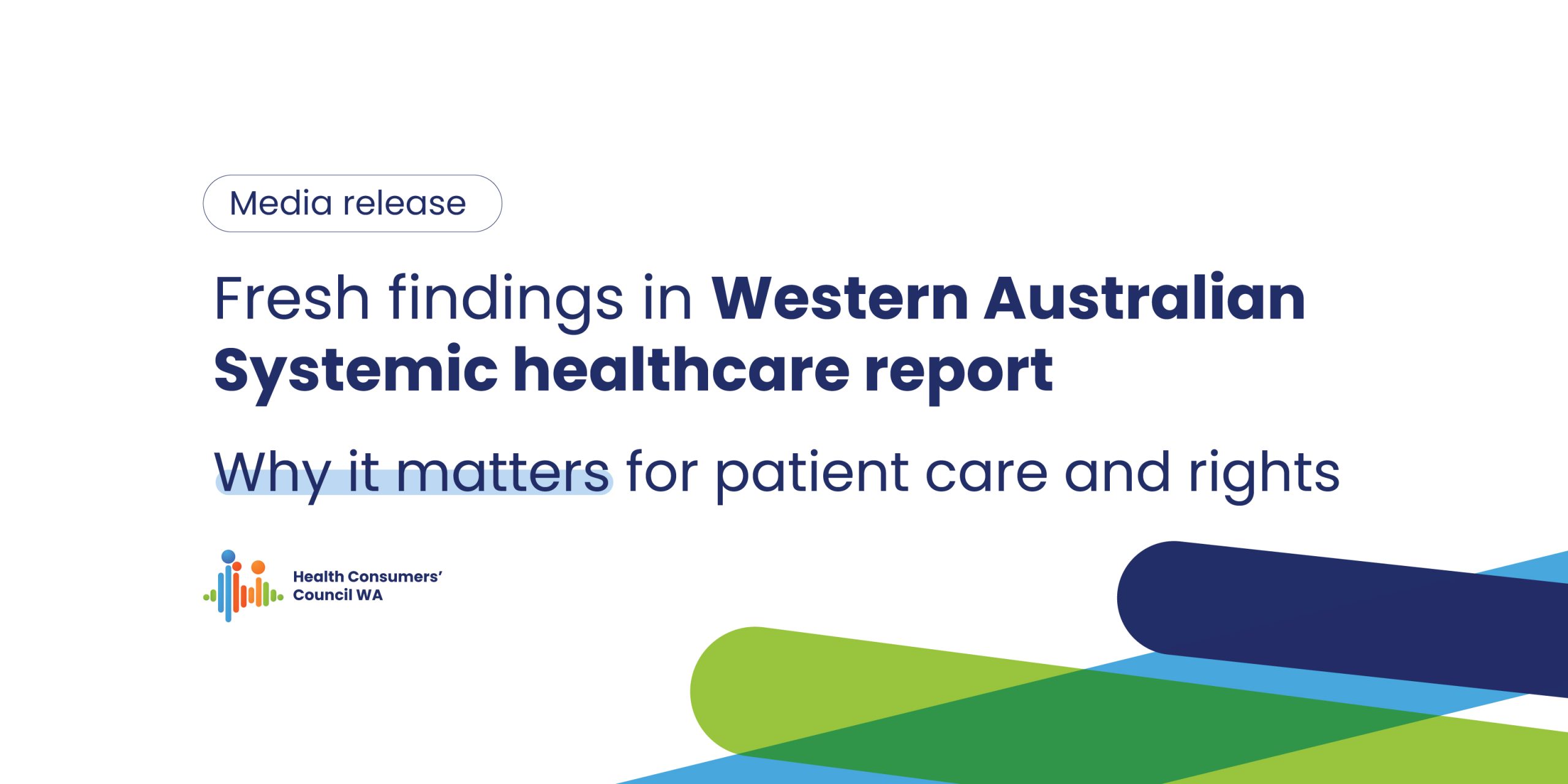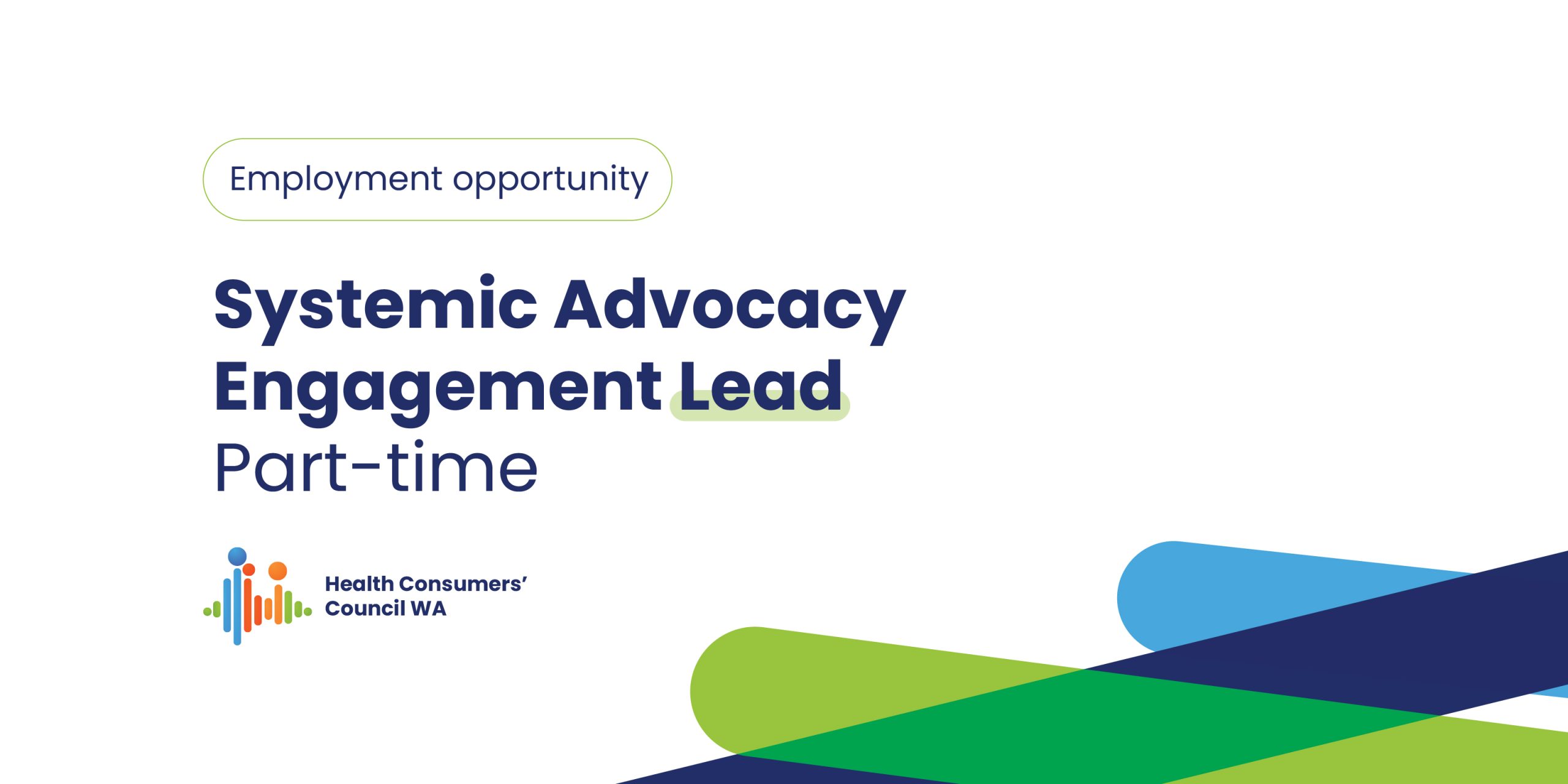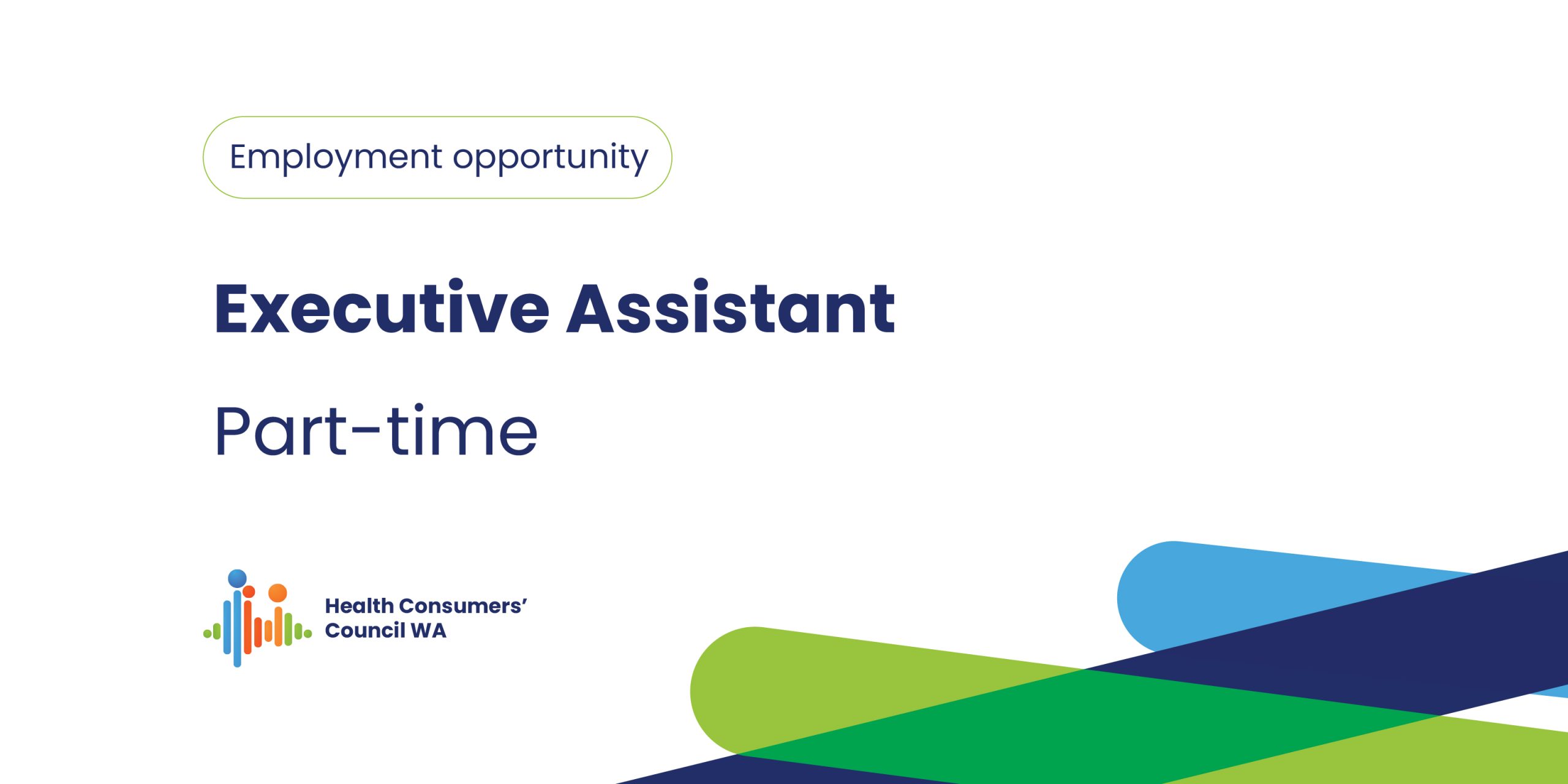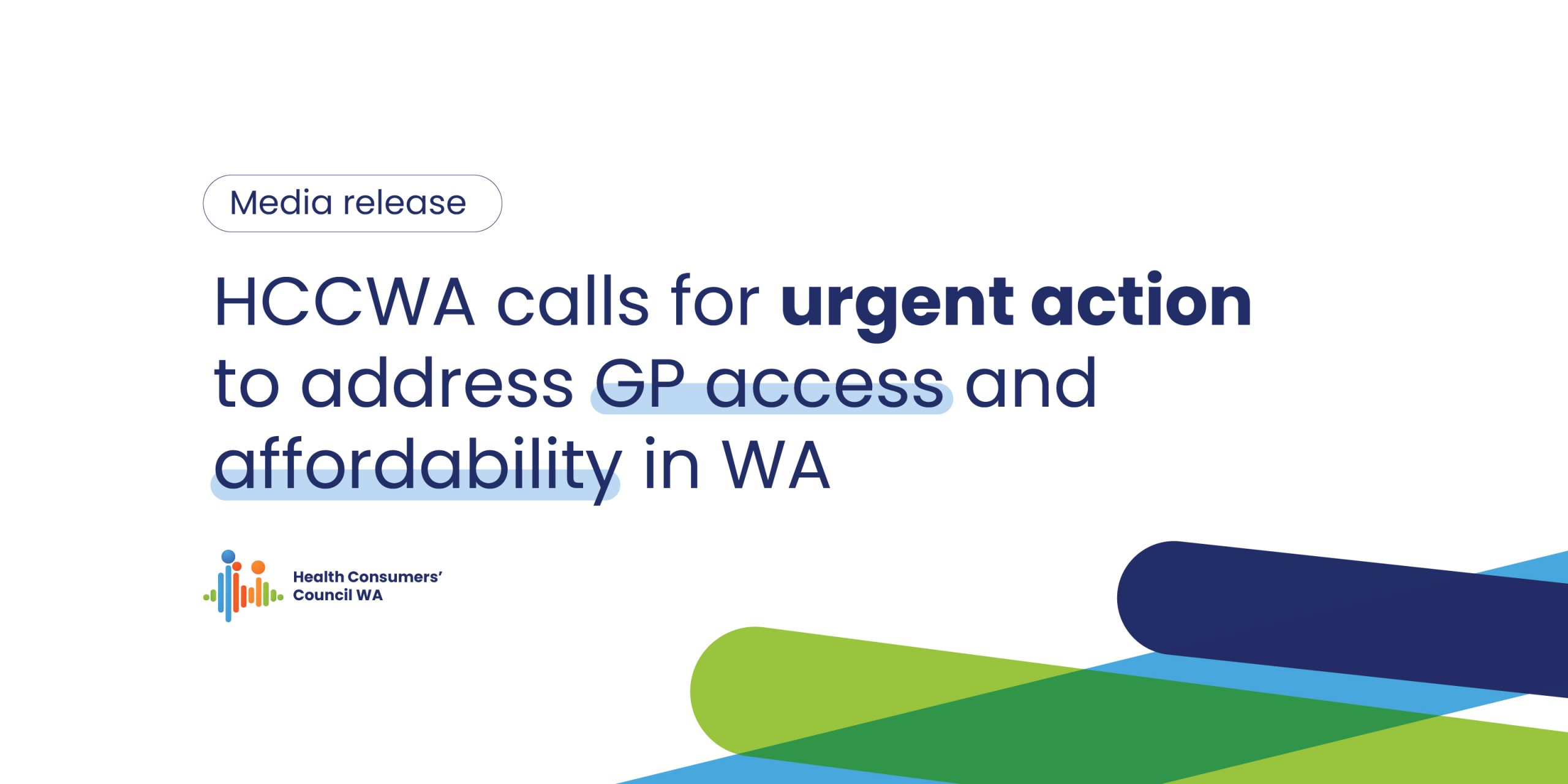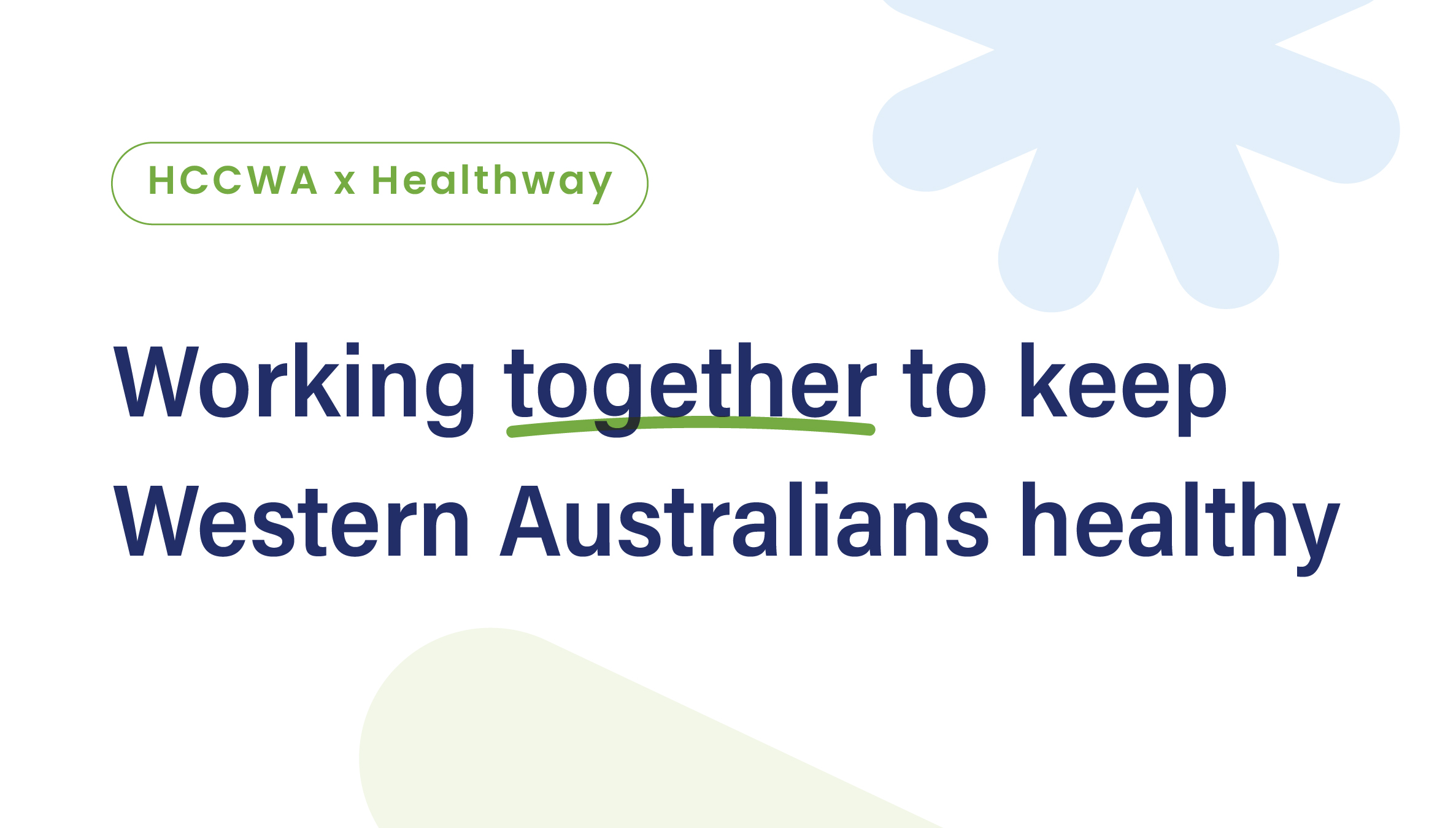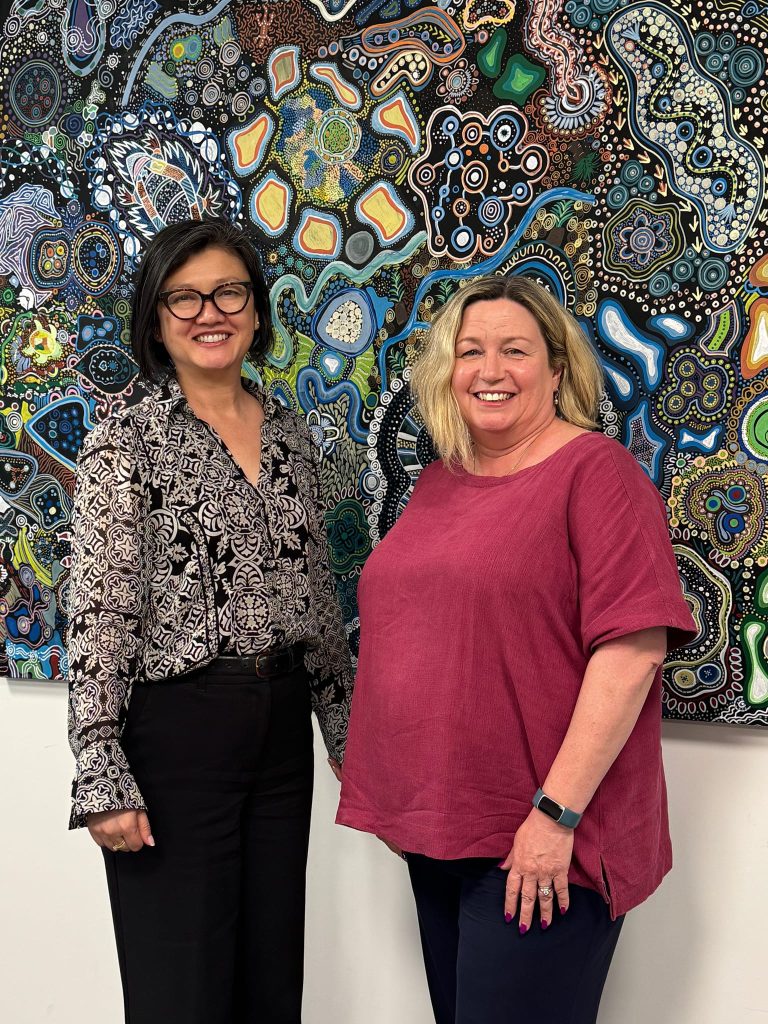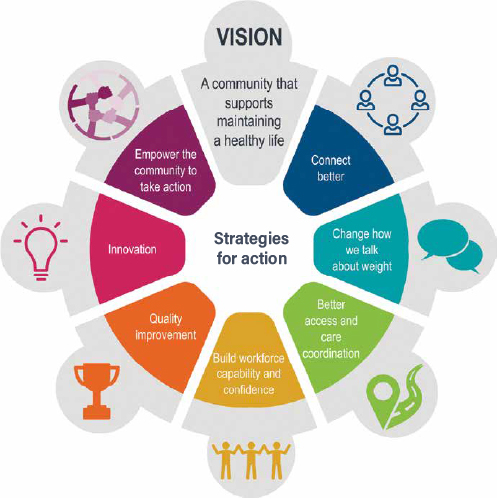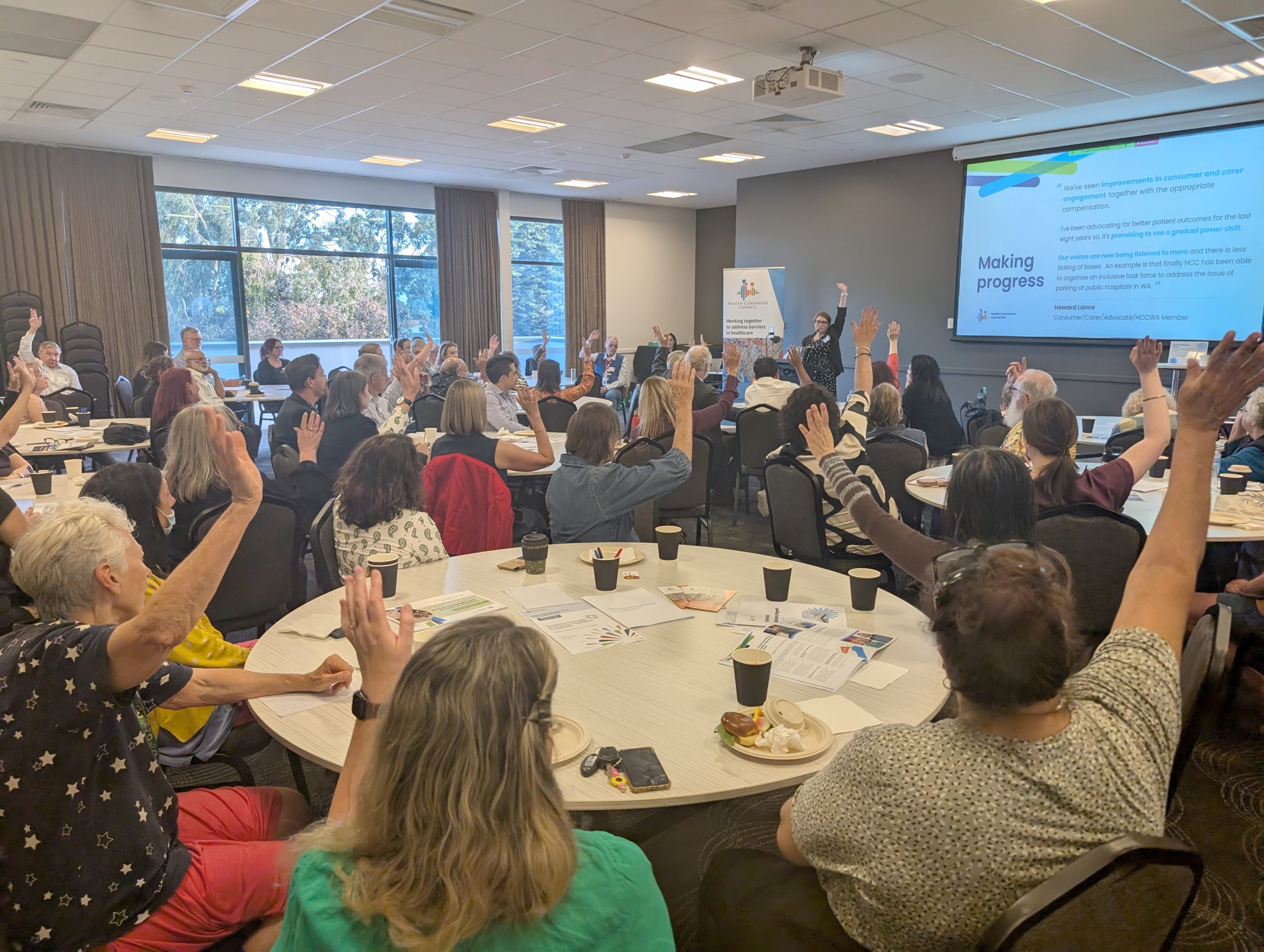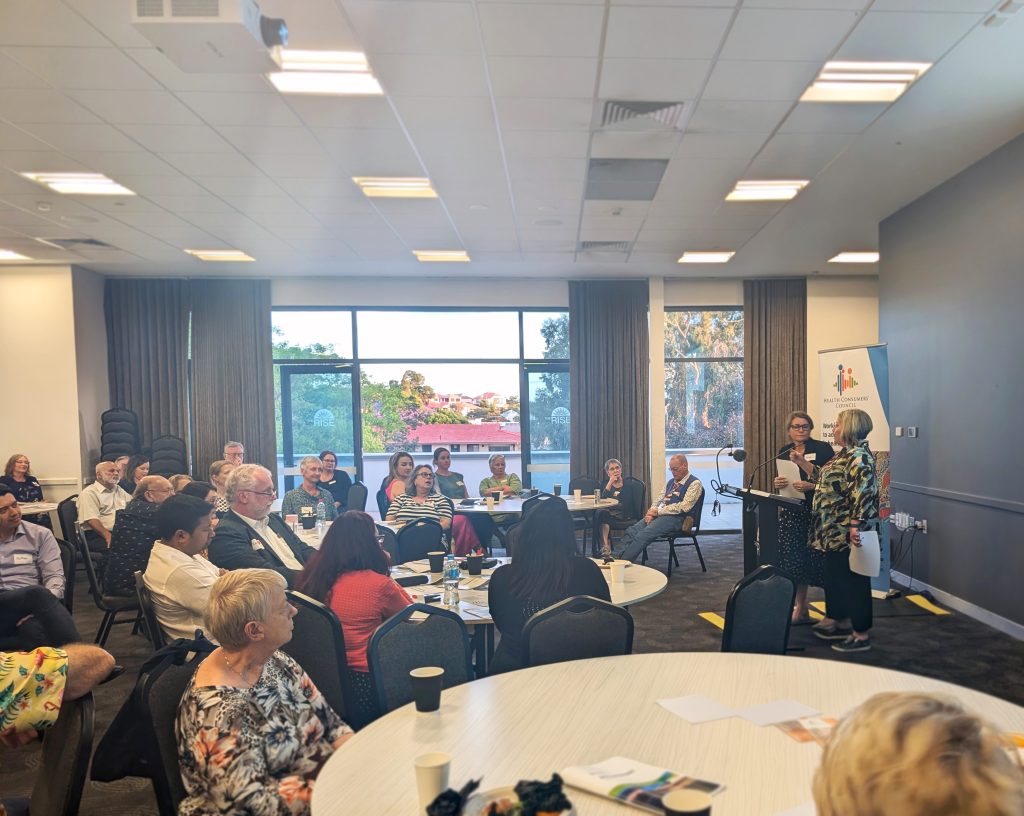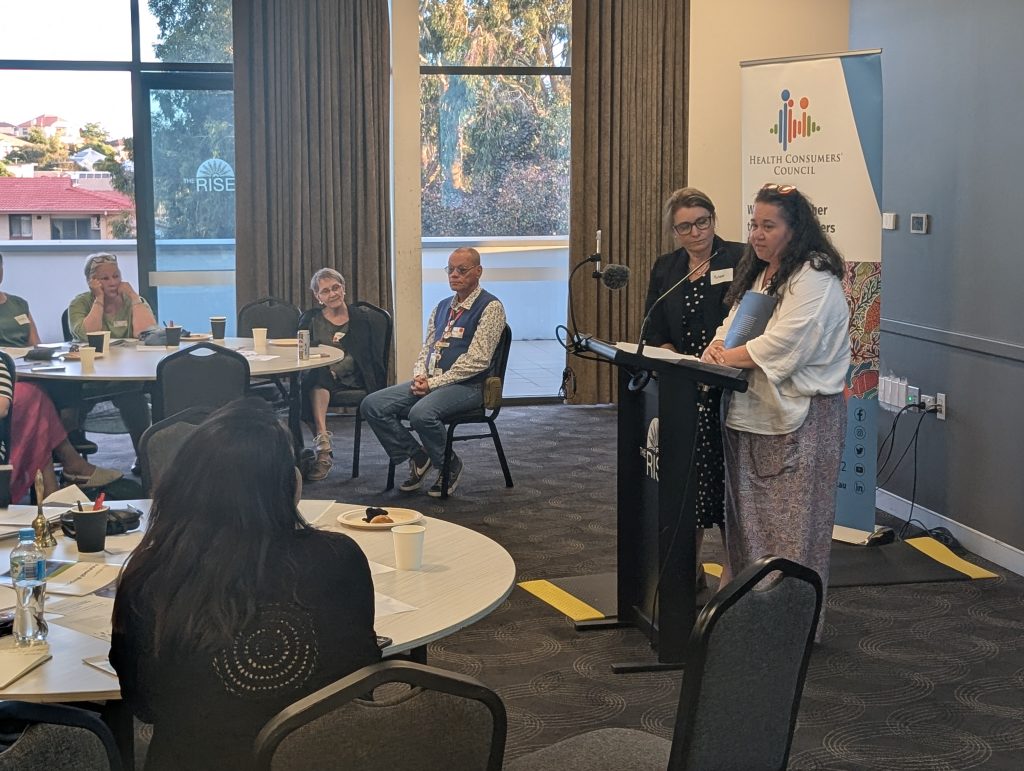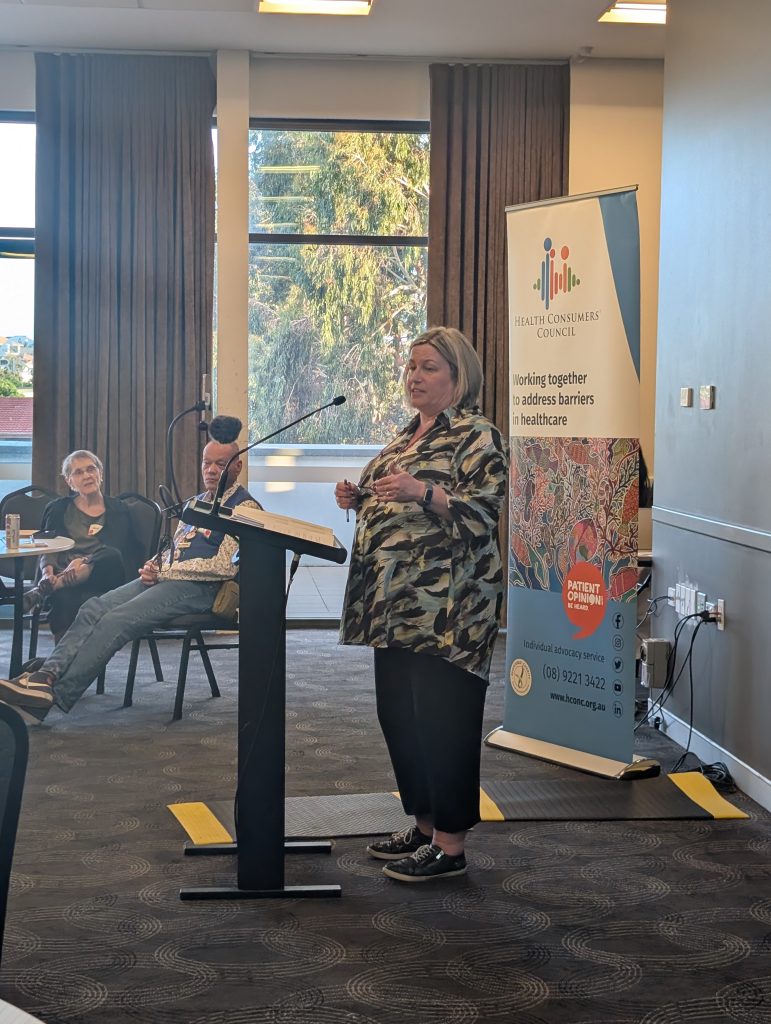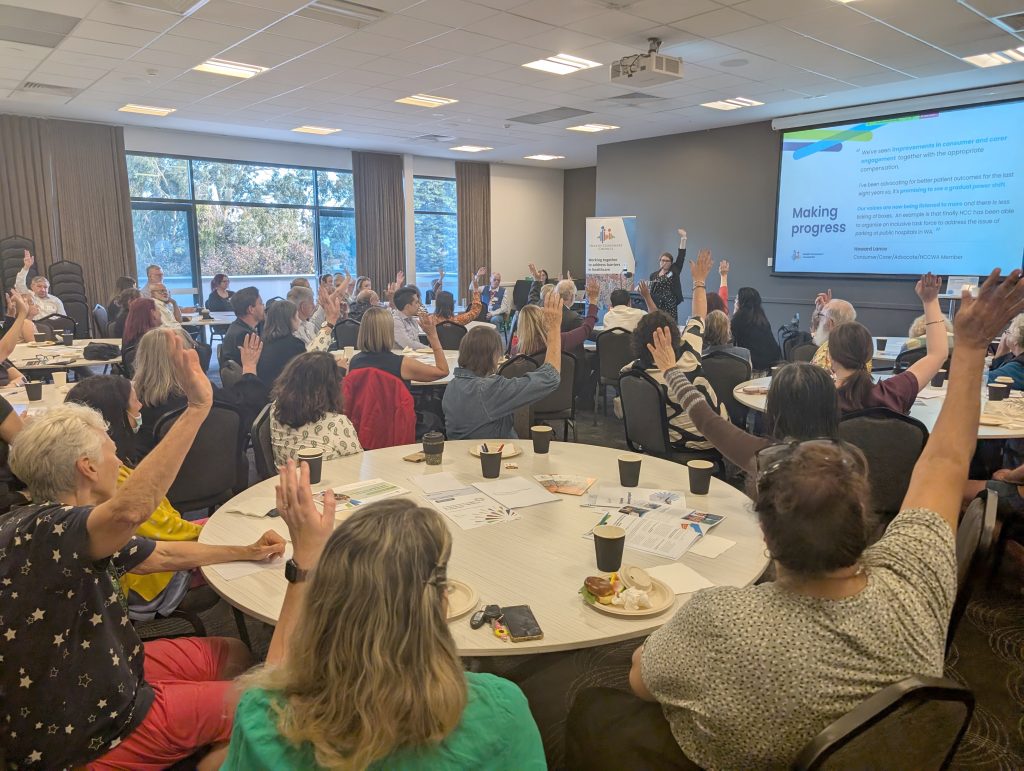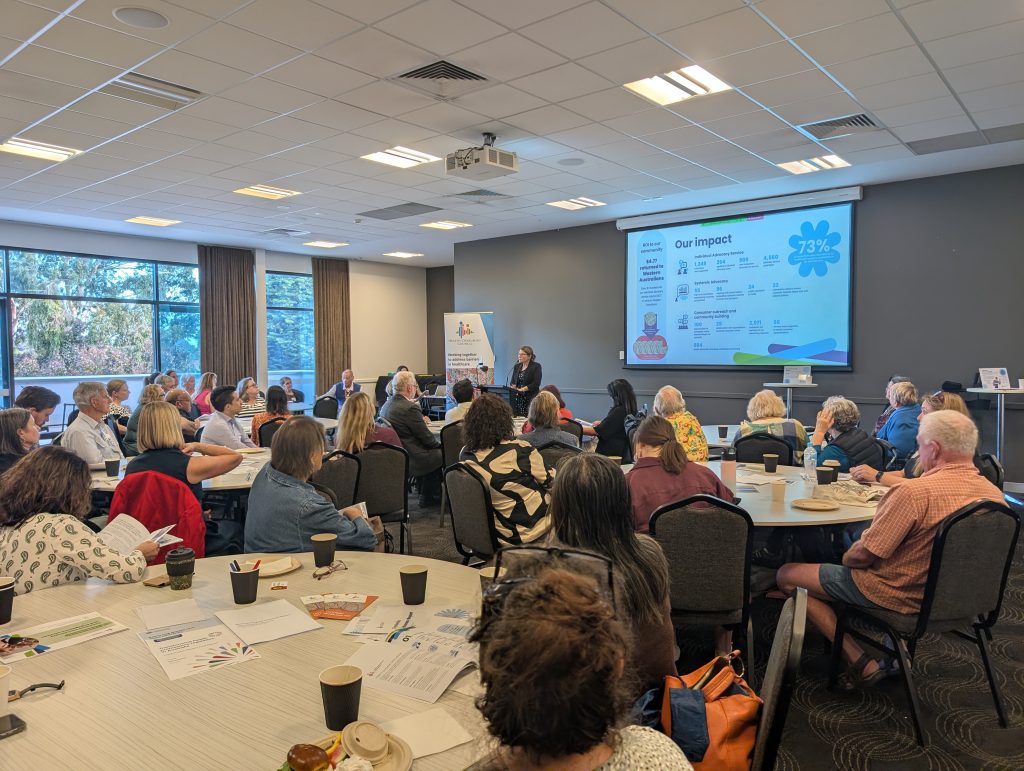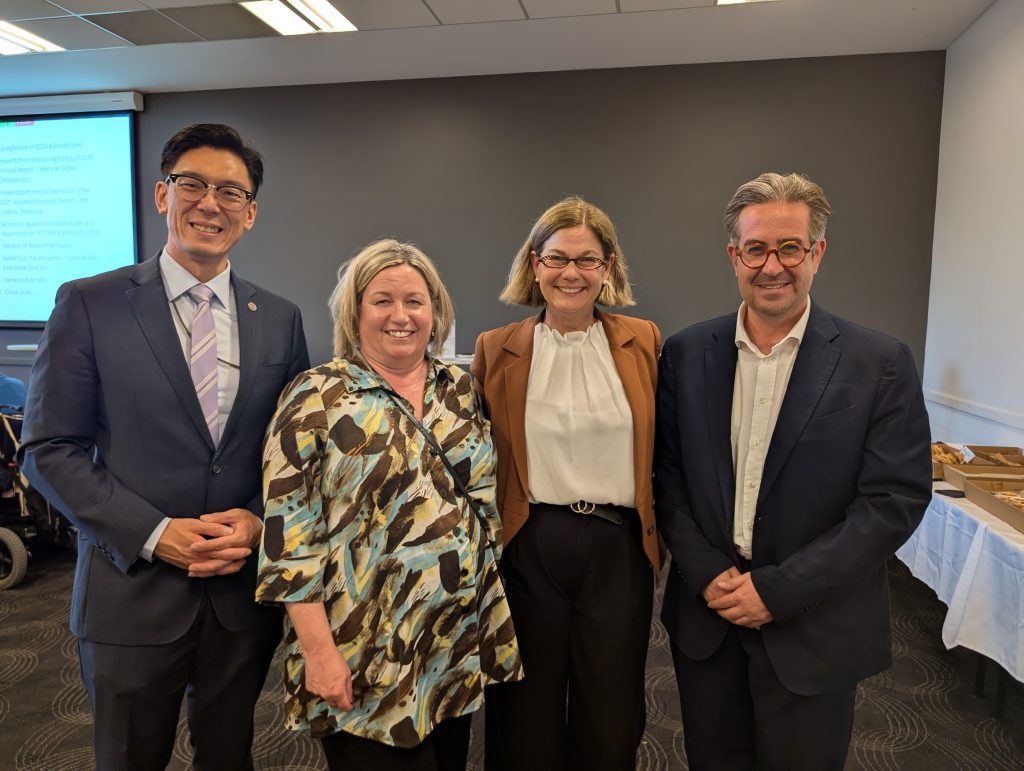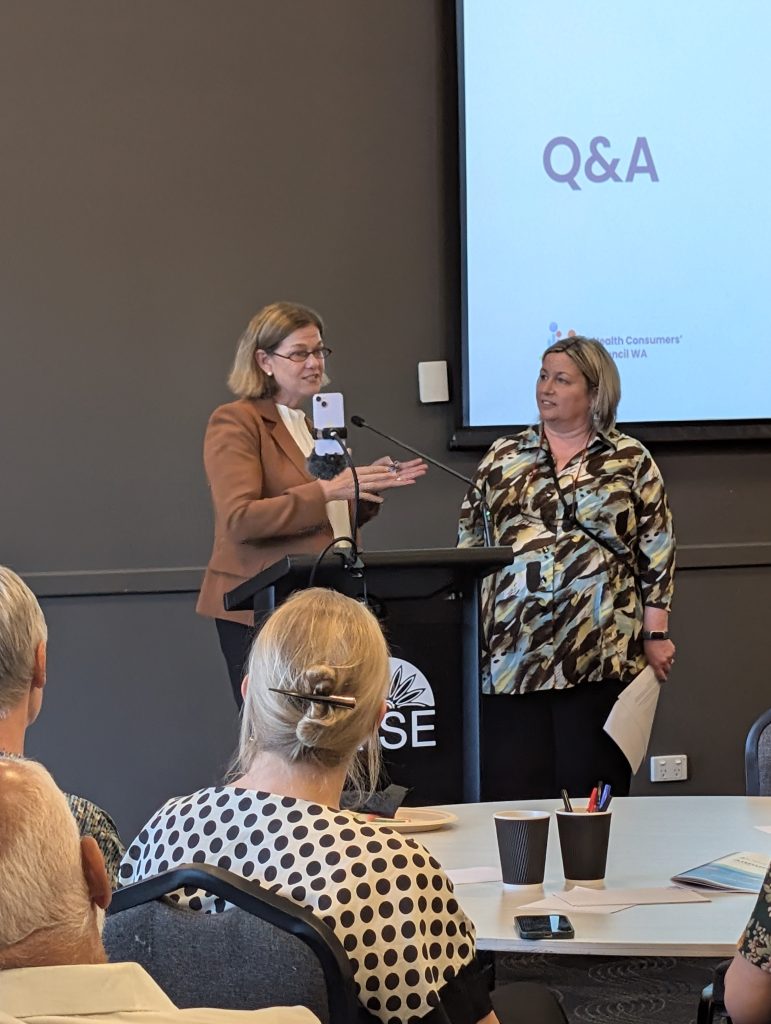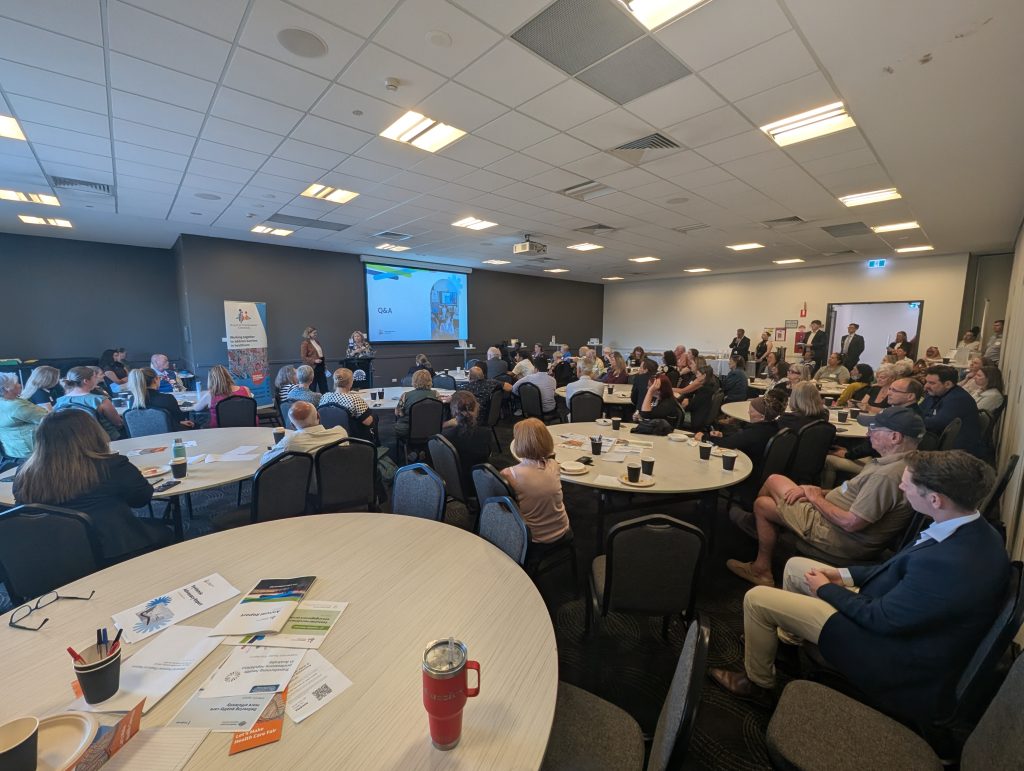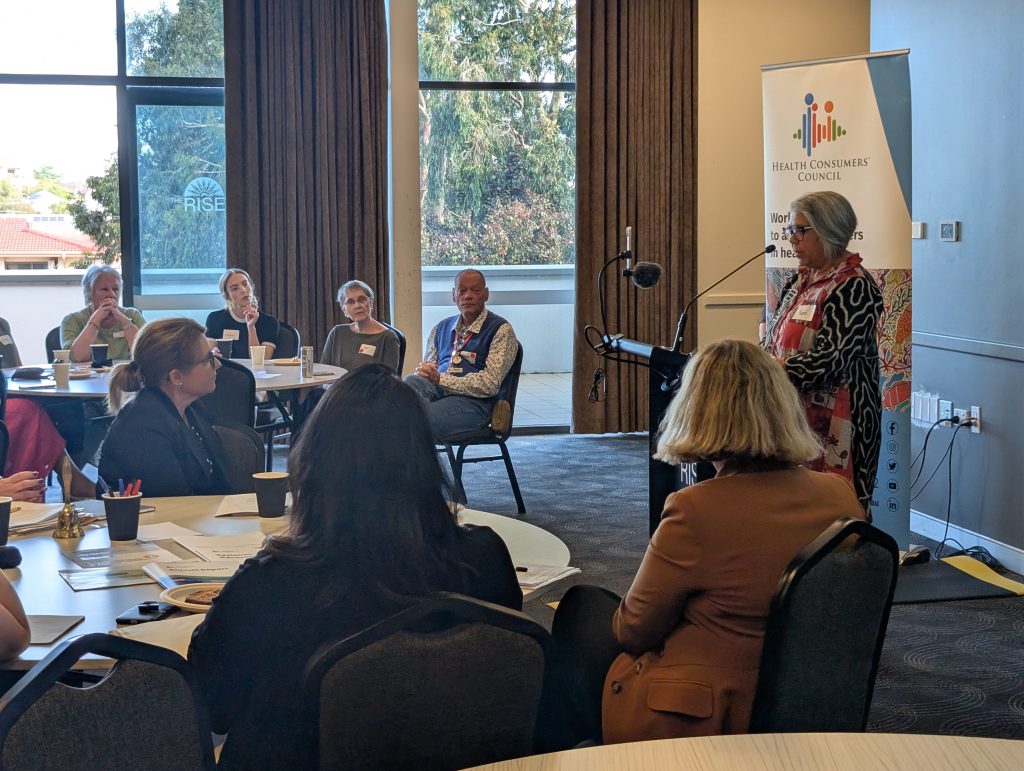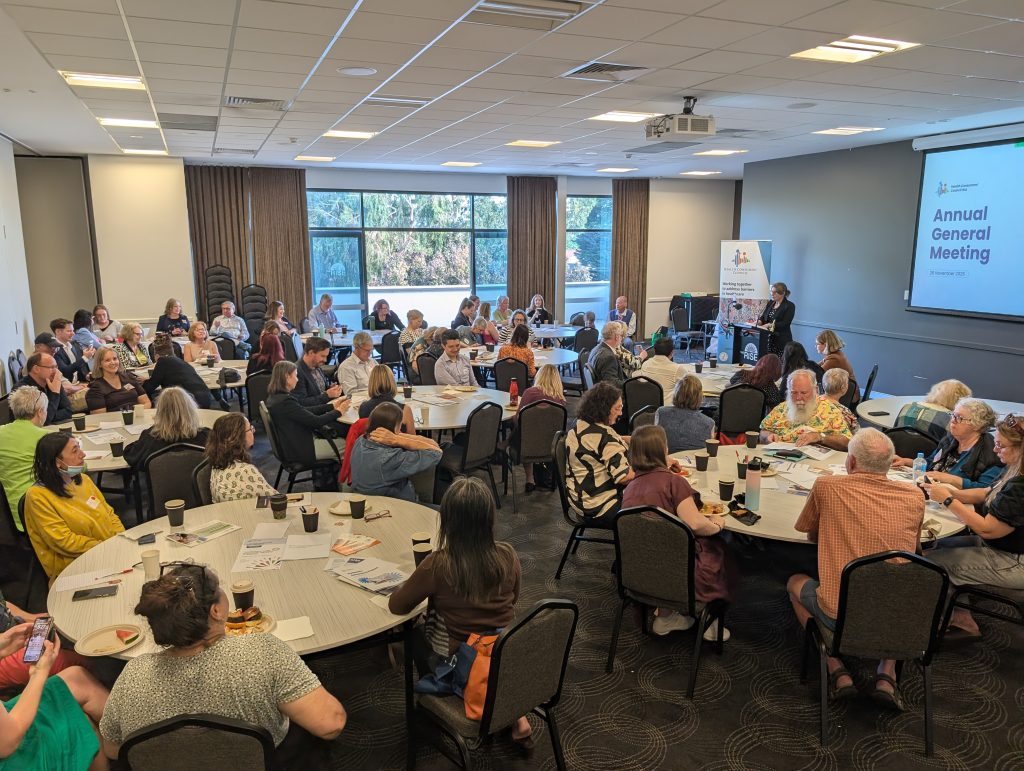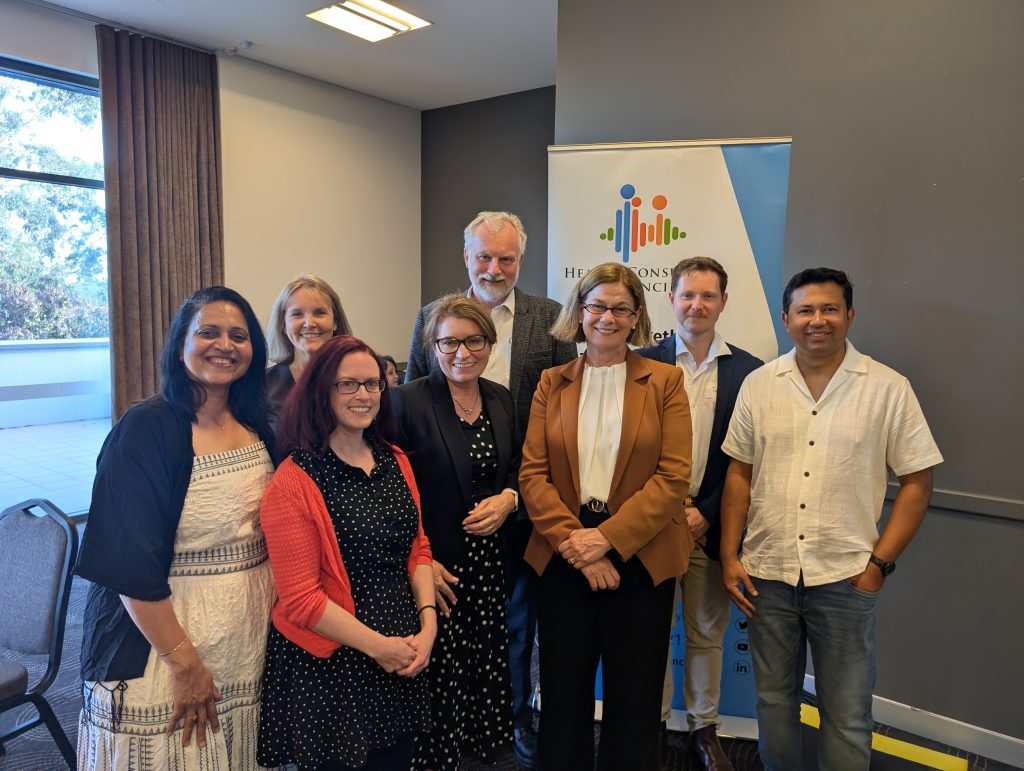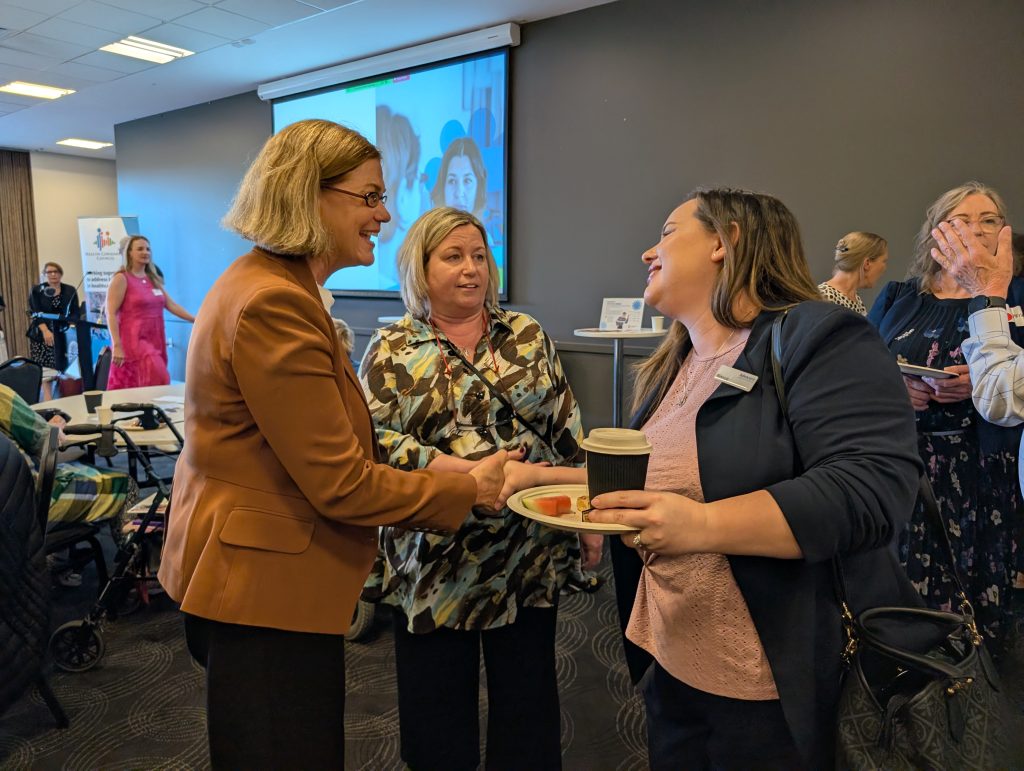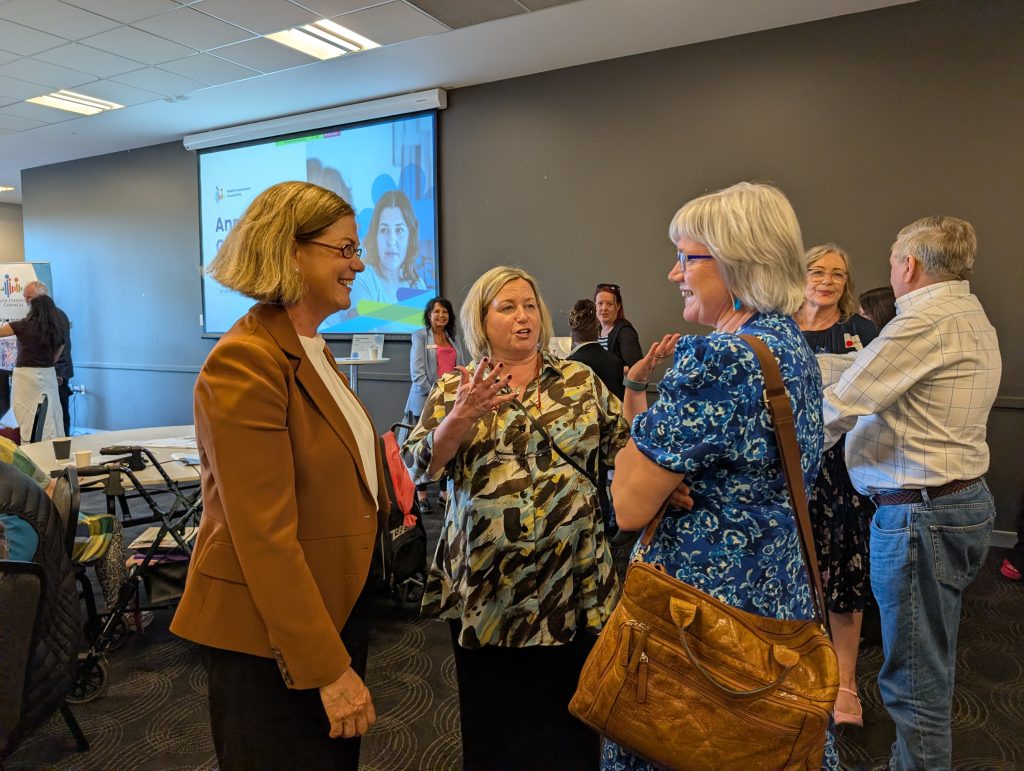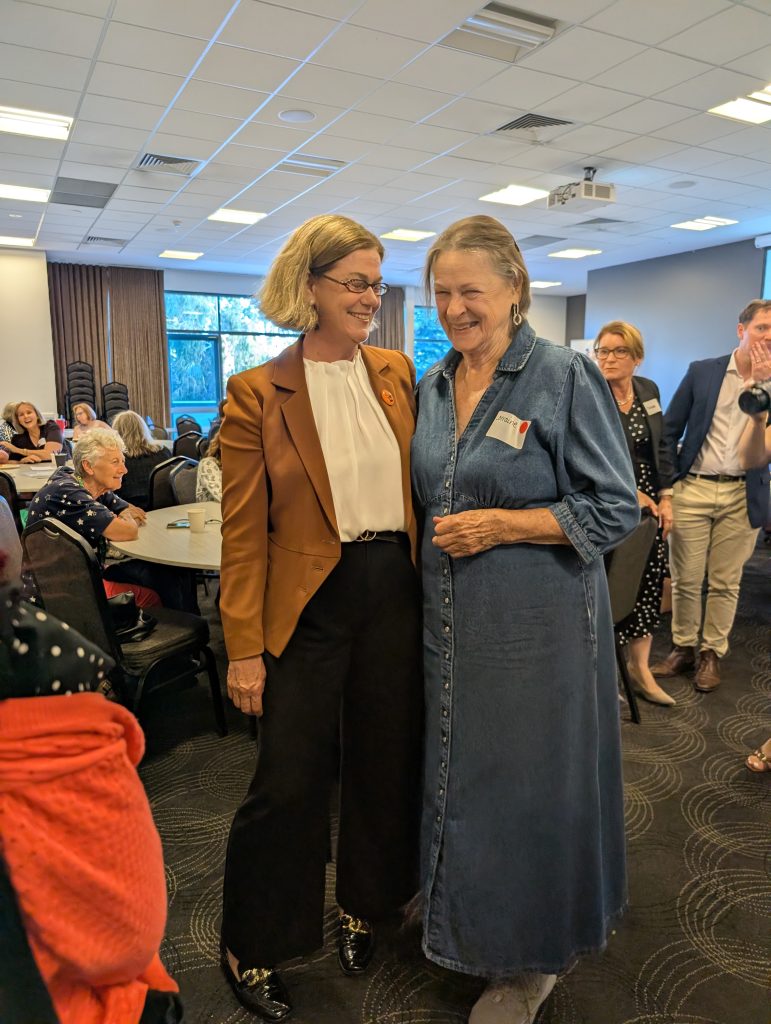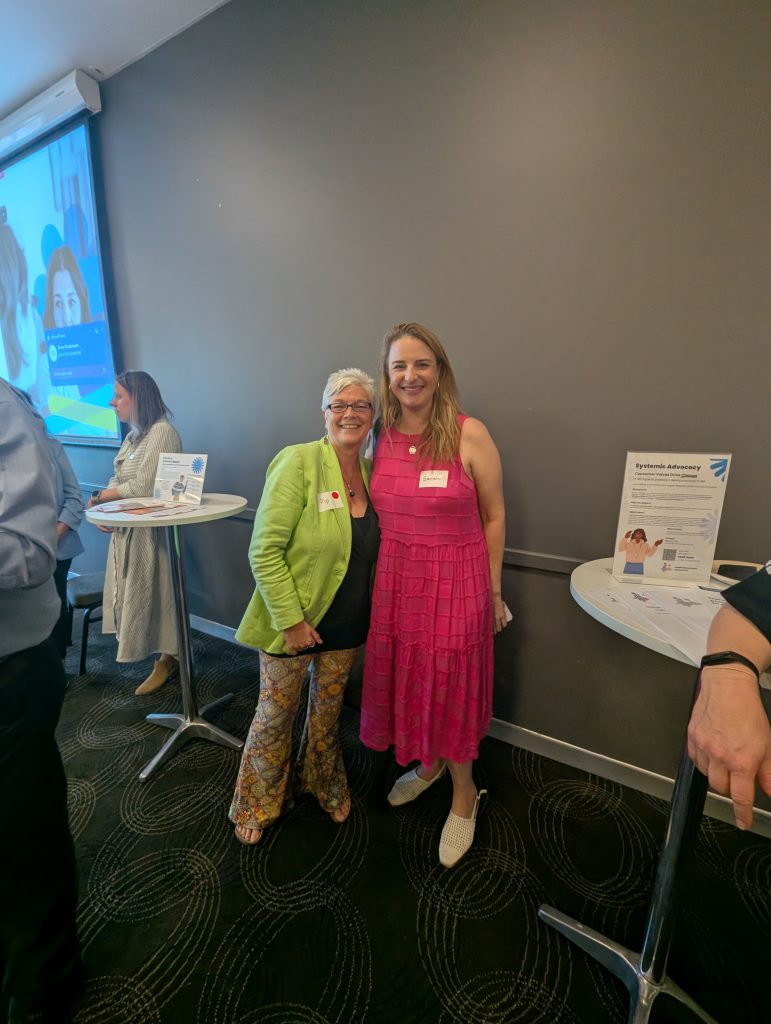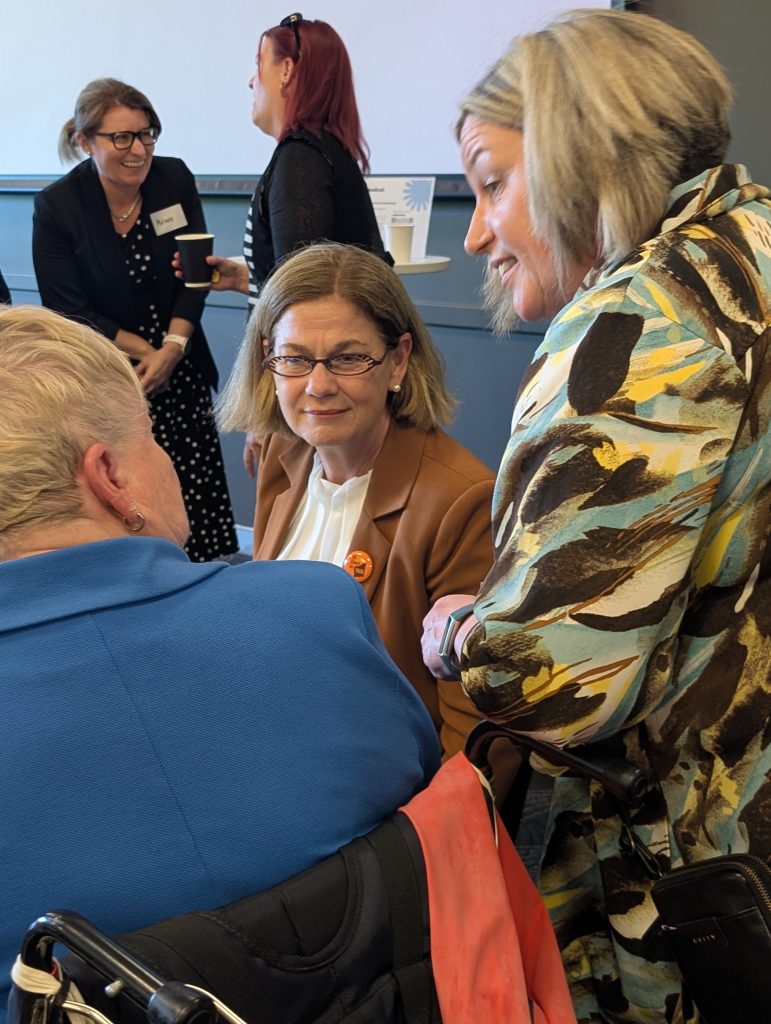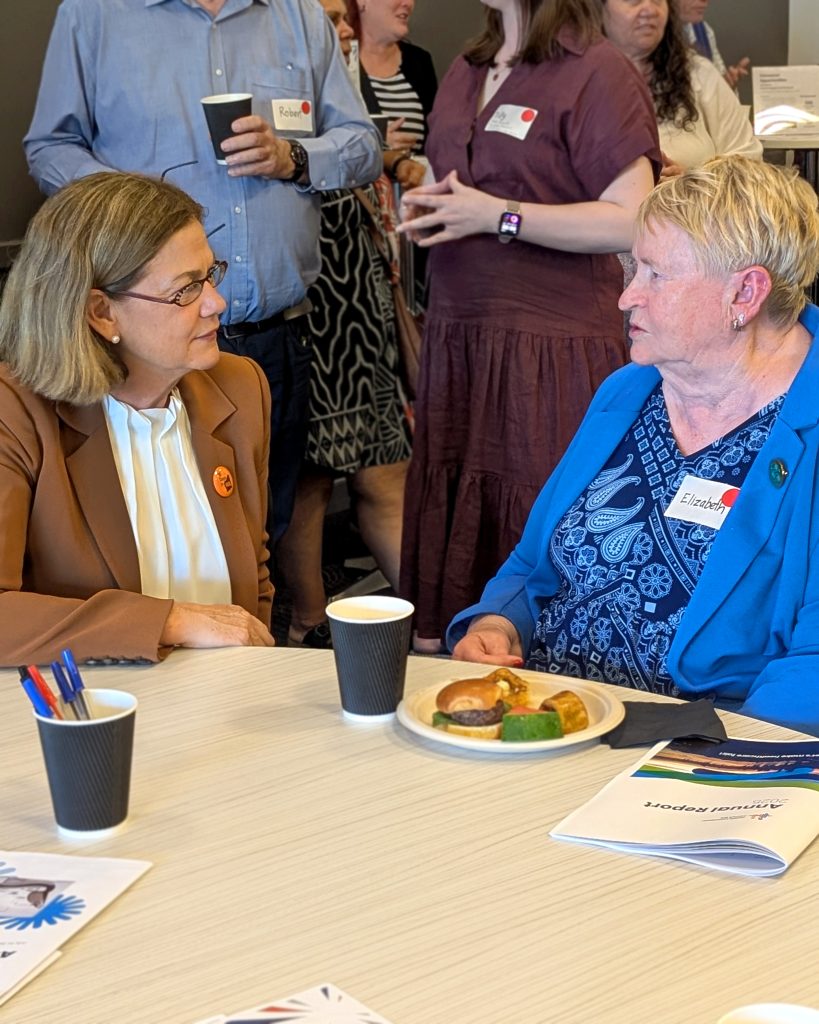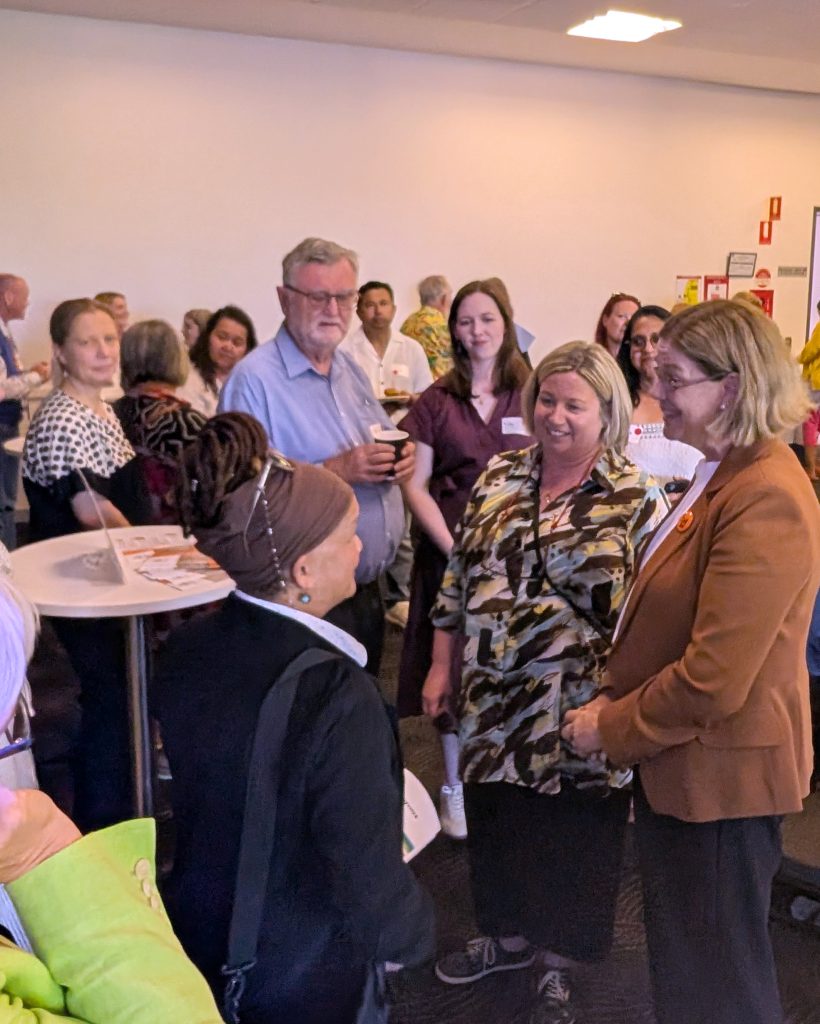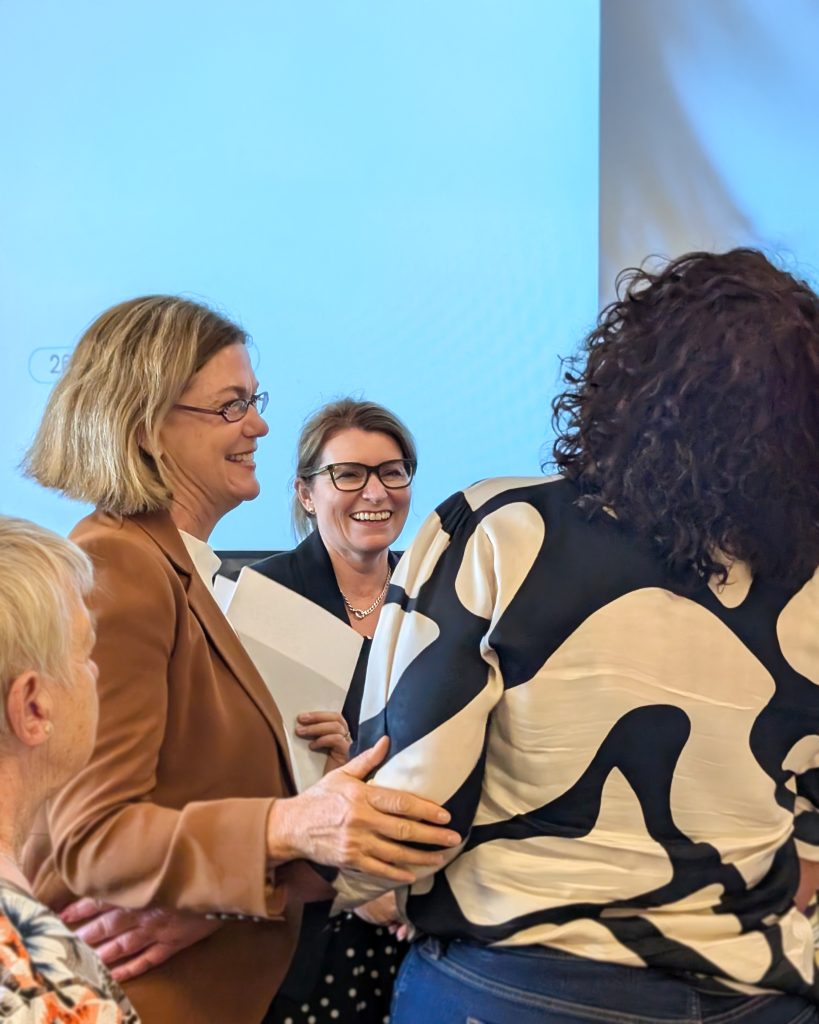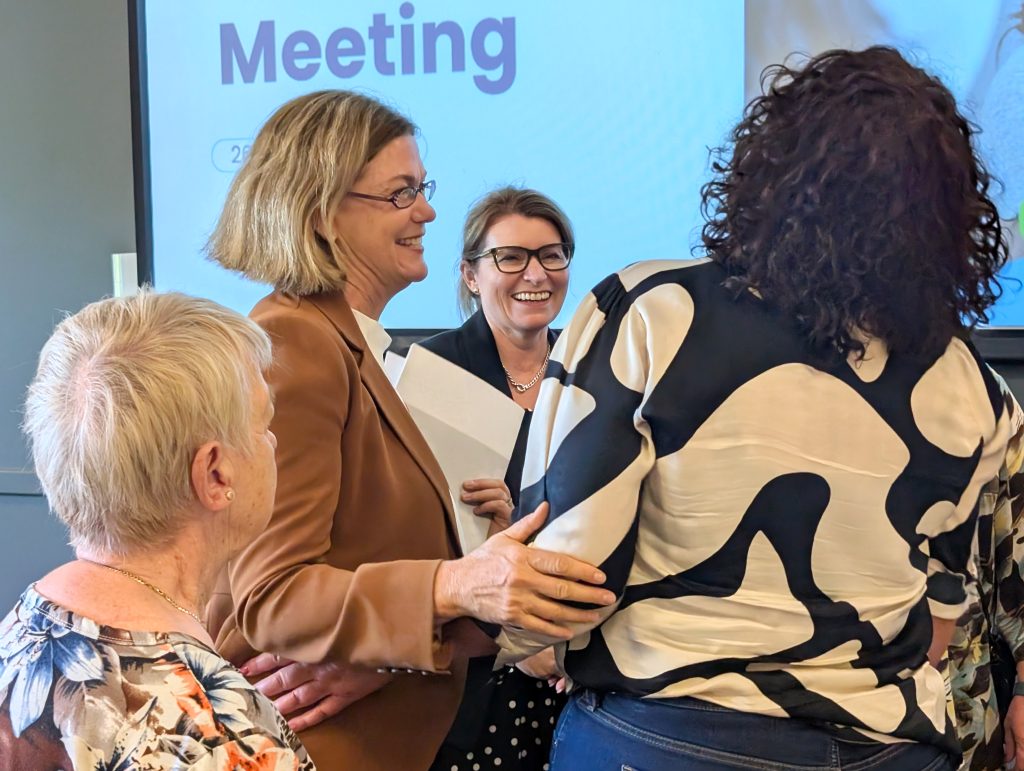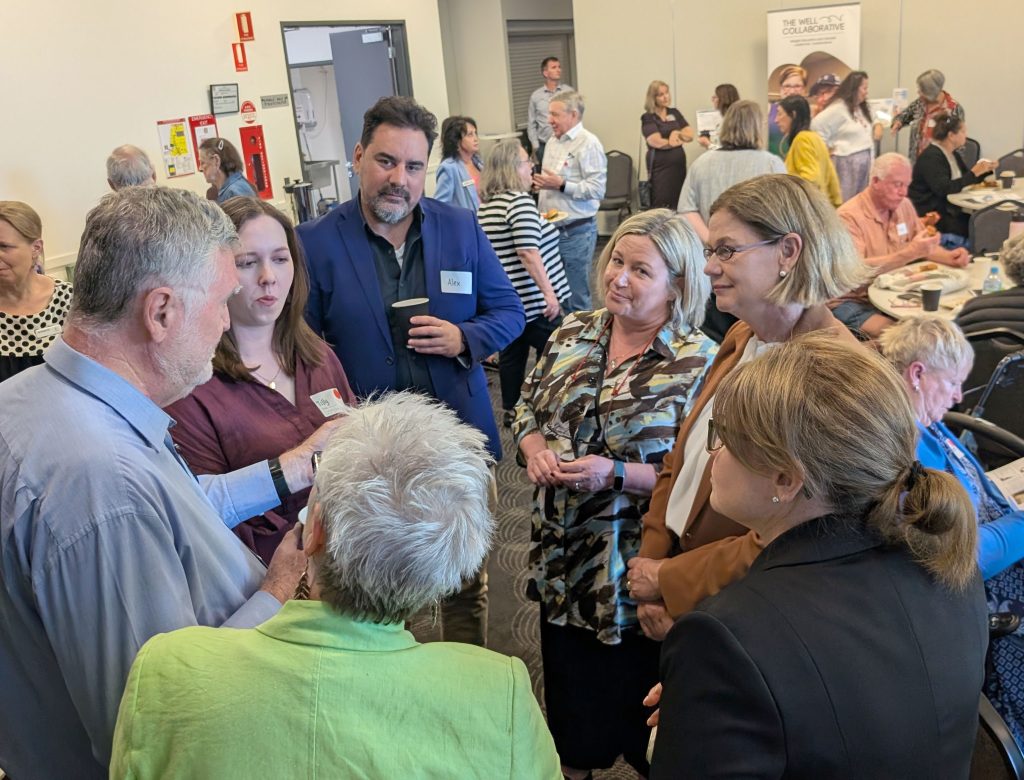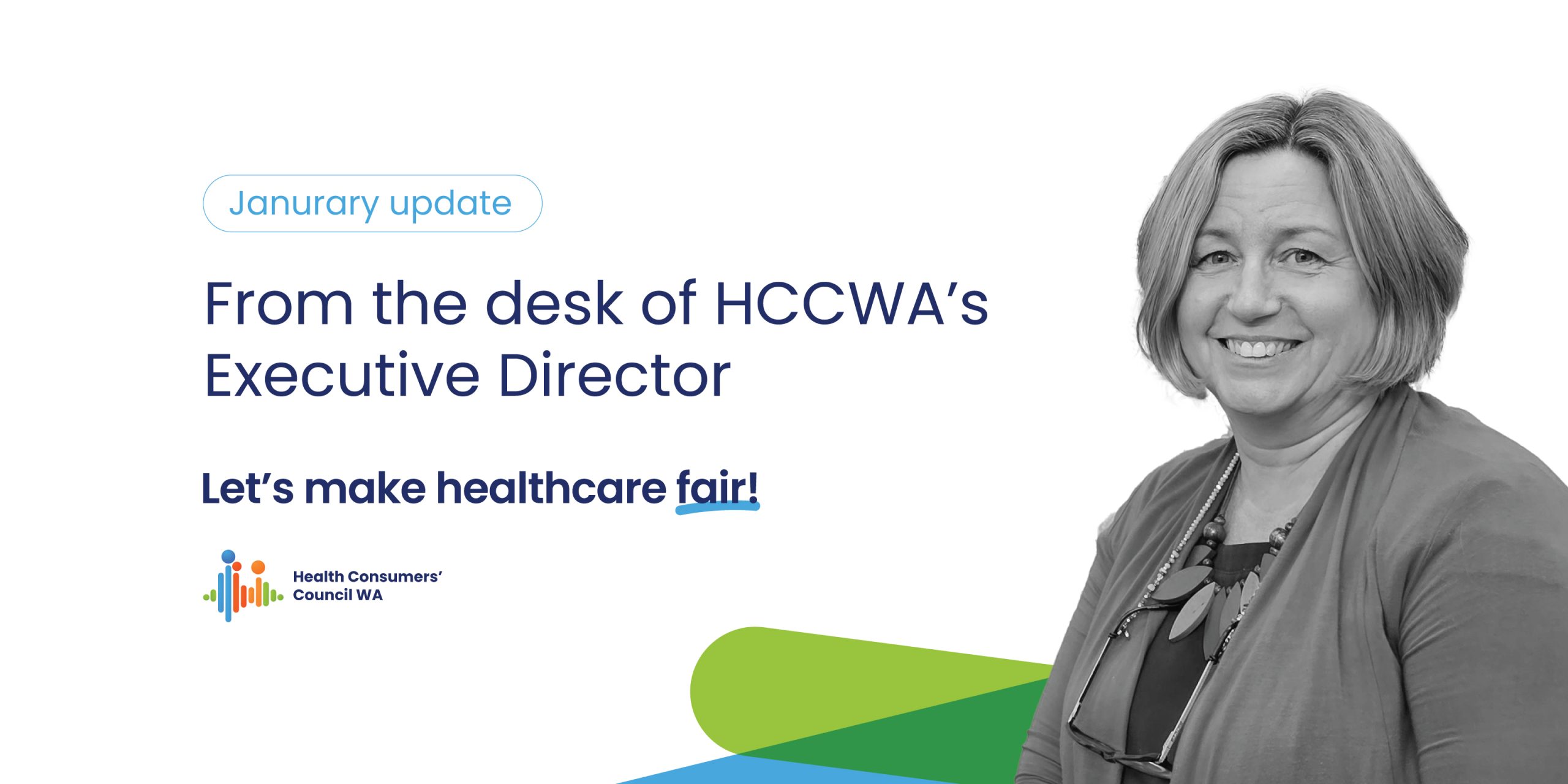
While January is sometimes thought of as a time for rest and leisure, that has not been the case here at HCCWA HQ.
High demand for independent individual advocacy
In January alone, enquiries to our service increased by 25% compared with the same time last year. We remain a small team, we do not advertise, and we are still the only service in Australia offering free, independent advocacy across all areas of healthcare. The rising demand we see is echoed in conversations with partner organisations, including COMHWA.
We know that independent advocacy saves lives, improves health outcomes, and strengthens patient experiences. That is why we are working hard to build a compelling case to Government for investment that matches the real level of community need—so that people are supported when navigating some of the most difficult moments of their lives.
Consumer interests influencing health system reform
I’m delighted to share the second of our Systemic Advocacy Report. Speaking up for consumers at the highest levels of decision making has always been central to HCCWA’s work – these reports are simply a new way of sharing it with members and networks so you can clearly see where consumer voices are influencing change. Please let us know what you think.
As many in our networks will know, there is a lot of reform underway across the health system. And those reforms must be shaped by strong consumer leadership and representation. One major opportunity is the Electronic Medical Record Program, which will fundamentally shape how people receive and experience care. We encourage consumers who want to ensure lived experience remains front and centre to consider getting involved here.
Another major reform is to support older people to be able to access care in different settings and we welcome news of the first integrated aged care hub opening. HCCWA and our partners at COTAWA have been putting forward consumer interests on this work for sometime and we look forward to seeing how these innovative services evolve.
This month, HCCWA also represented consumer interests in four preventative health roundtables hosted by Minister Sabine Winton. We sensed deep listening and genuine commitment, and we look forward to the development of Western Australia’s first Preventative Health Strategy. Public consultation opportunities are expected—watch this space.
The HCCWA team
We are delighted to welcome back a familiar face, Louise Ford, who will be working with us in cultural diversity engagement over the coming months. You’ll see her at community events and delivering our popular course, Supporting Cultural Diversity in Healthcare, next month. It regularly sells out, so book early if you’re interested.
In our recent staff meeting, each of us reflected on what brought us to, and keeps us at, HCCWA. A recurring theme was a desire to help address the injustice and disempowerment that too many people experience in healthcare. Whether that’s in a clinical encounter where someone’s concerns have been dismissed, or when trying to make sense of the complicated world of private healthcare and health insurance. Everyone at HCCWA is dedicated to ensuring that people who use health services – patients, families, significant others – have their healthcare rights met and their voices heard.
As a small team dealing with the enormous demand for this support from the community, it is this purpose that maintains our energy for this important work.
Build your knowledge, connect with peers
We say this often because it remains true: health consumers and families are the only people who experience the entire care pathway. As major changes unfold across aged care, disability, primary care, hospitals, and private health services, the presence of informed consumer leaders in every conversation has never been more important to ensure that these reforms deliver a joined up system. In this month’s e-news, you’ll find ways to begin—or deepen—your consumer representative journey.
Finally, to everyone across Western Australia who champions consumer voices—members of community advisory councils, District Health Advisory Councils, lived experience and Aboriginal cultural advisory groups, Standard 2 committees, and the many other forums where truth is spoken to power—thank you.
And to the staff across the system who open doors, listen with intent, and act with purpose on what consumers share: thank you. Your work makes better health outcomes possible for us all.
Clare Mullen | Executive Director





